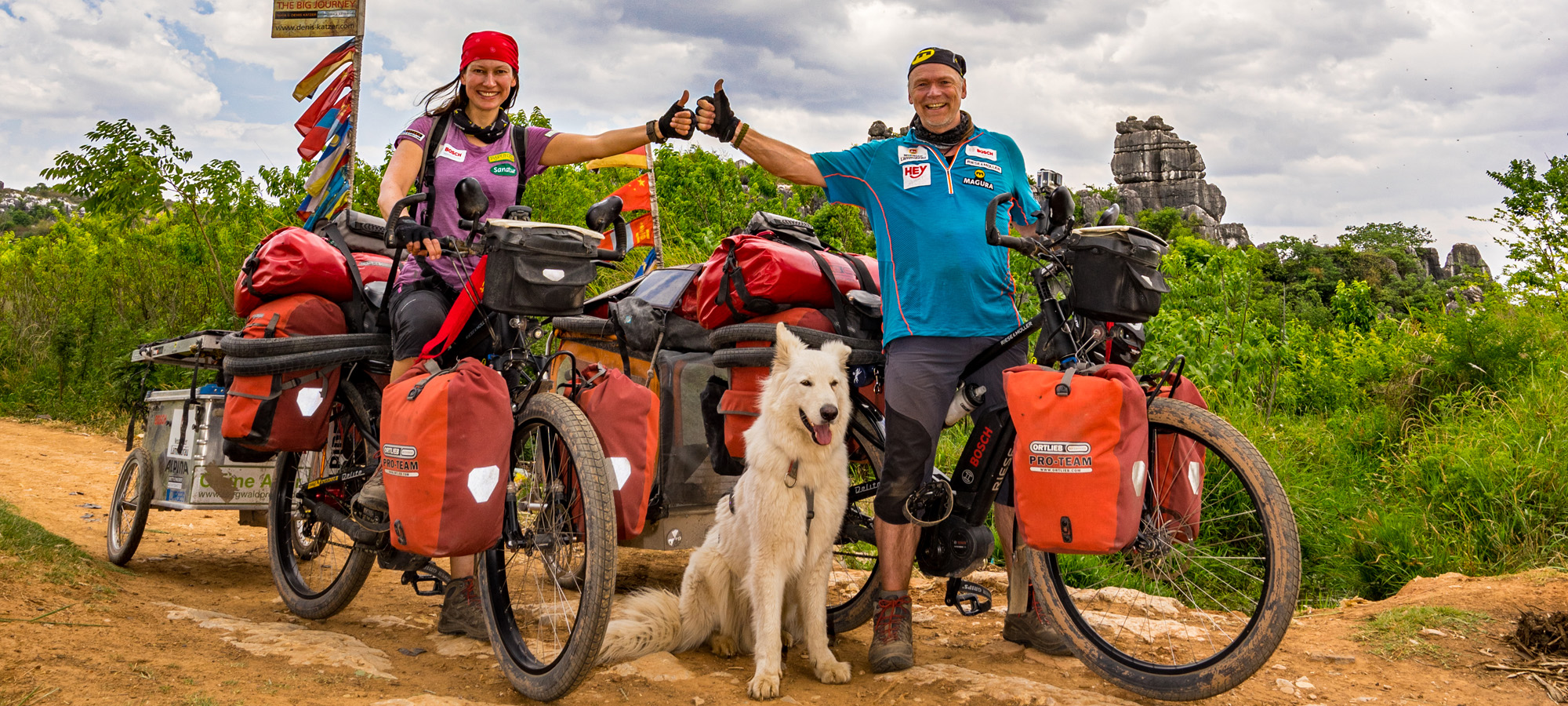
Severe slipped disc
N 44°26'48.2'' E 026°03'41,6''Events from 30.06.2006
Today is the first morning in four days that I’ve woken up with confidence and reasonably bearable pain. It was the first night that I found sleep. The electrically adjustable bed even puts me in an inclined sitting position. I can’t look out of the window, but at least I can eat my own breakfast.
Then they drive me to another hospital and push me into the tube to finally get an MRI. Dr. Baltisanu visits us again in the late afternoon. “You have a severe slipped disc. I advise you to have an operation as soon as possible. If this accident had happened in the Mongolian steppe, you would never be able to walk again. If you’re lucky, we’ll get you into a transportable position with medication, but it’s up to you to decide.” Although he has chosen his words very carefully and smiles at me confidently, his statement literally pulls the rug out from under my feet. Have an operation in Romania? That can’t be right? “I don’t want to have an operation. Please, let’s try the medication method first,” I reply and feel that awful fear rising up inside me again.
I’ve heard a lot of good things about disc surgery in recent years. But I have also heard a lot of bad things, far too many bad things to be positive about such an intervention. Suddenly our life project is on my mind. Is it at risk? Might I never be able to sit on a bike, elephant, camel or horse again? How should things continue? Is the great journey over? My God help me. I want to be able to walk again without pain. I want to be a normal, healthy person again. I don’t want to be paralyzed. None of this can be true. What have I done to deserve this? “Don’t have such bad thoughts,” Dr. Baltisanu interrupts me as if he can actually read what’s brewing in my brain. “I can assure you that such operations are no longer a big deal these days. I myself know top athletes who are back playing tennis or playing soccer in the first division after disc surgery. Even boxers go back into the ring after such an operation. So please, don’t scare yourself. In a few days you will be able to walk independently again and fly home. I can understand not wanting to be operated on in a foreign country. However, such standard operations are the same all over the world,” I understand his words and am infinitely grateful to him. “I’ll come back tomorrow. Then you can let me know what you decide,” he says and quietly closes the door to the room.
Although I knew all along that I could feel something abnormal in my back, the fact now hits me harder than I would have believed. “What do you mean?” I ask Tanja in an anxious voice. “I don’t know. I’m afraid of making the wrong decision. Ultimately, you have to decide.” “But I don’t know how to decide. What if they make a mistake here? Just one tiny little mistake? Then I’ll end up in a wheelchair. But I don’t want to be in a wheelchair.” “Maybe we’ll wait a few more days. If it gets better, we can fly to Germany. There you can take the time to find a specialist you trust.” “Hm, I think that’s what we’ll do. Sounds like a sensible alternative,” I say, regaining my confidence.
In the evening we watch the soccer match between Germany and Argentina. Despite my aching body, the game captivates me. Then I watch a program with Steve Erwin (the Australian crocodile hunter who died today). Time passes, it gets dark outside, but despite the infusions, sleep is hard to come by. “I have to pee,” I call out quietly. Tanja is immediately awake and pushes a kind of beaky bowl under my buttocks. I have no energy left for feelings of shame. At 12:00 at night I need another pain infusion, the fourth since my admission. I have the feeling that the pain is mutating into a monster again. Despair returns.

